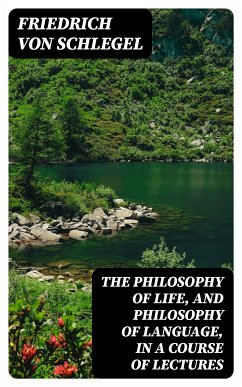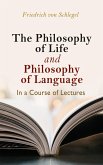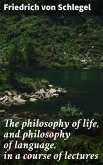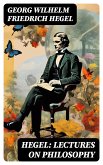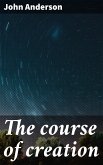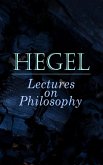Friedrich von Schlegel's 'The Philosophy of Life, and Philosophy of Language, in a Course of Lectures' is a crucial text that delves into the profound interconnectedness of linguistics, culture, and existential thought. Schlegel's literary style is rigorously analytical yet engaging, incorporating a Romantic era sensibility that seeks to unify disparate elements of philosophy and philology. Within the historical context of German idealism, this work stands as an essential contribution, reflecting Schlegel's exploration of the origins and structures of language and their implications for understanding the human condition. Friedrich von Schlegel, a key figure in the Jena Romantic Circle, was known for his philosophical depth and his role in shaping Romanticism as a literary and intellectual movement. His preoccupation with the nature of language and life led him to this comprehensive series of lectures, encapsulating his views. A pioneer of comparative linguistics and a philosopher of history, Schlegel's own life and extensive background in classical literature and philosophy significantly influenced his perspectives in this seminal work. Scholars and students of philosophy, linguistics, and Romantic literature will find Schlegel's 'The Philosophy of Life, and Philosophy of Language, in a Course of Lectures' an invaluable resource. The rich interplay of ideas presented within offers substantial insights into the early 19th century zeitgeist and remains relevant in contemporary discussions of language theory and existential philosophy. This edition by DigiCat Publishing presents the treatise in an accessible format that both honors its legacy and facilitates continued scholarly engagement with Schlegel's timeless analysis.
Dieser Download kann aus rechtlichen Gründen nur mit Rechnungsadresse in A, B, BG, CY, CZ, D, DK, EW, E, FIN, F, GR, H, IRL, I, LT, L, LR, M, NL, PL, P, R, S, SLO, SK ausgeliefert werden.

